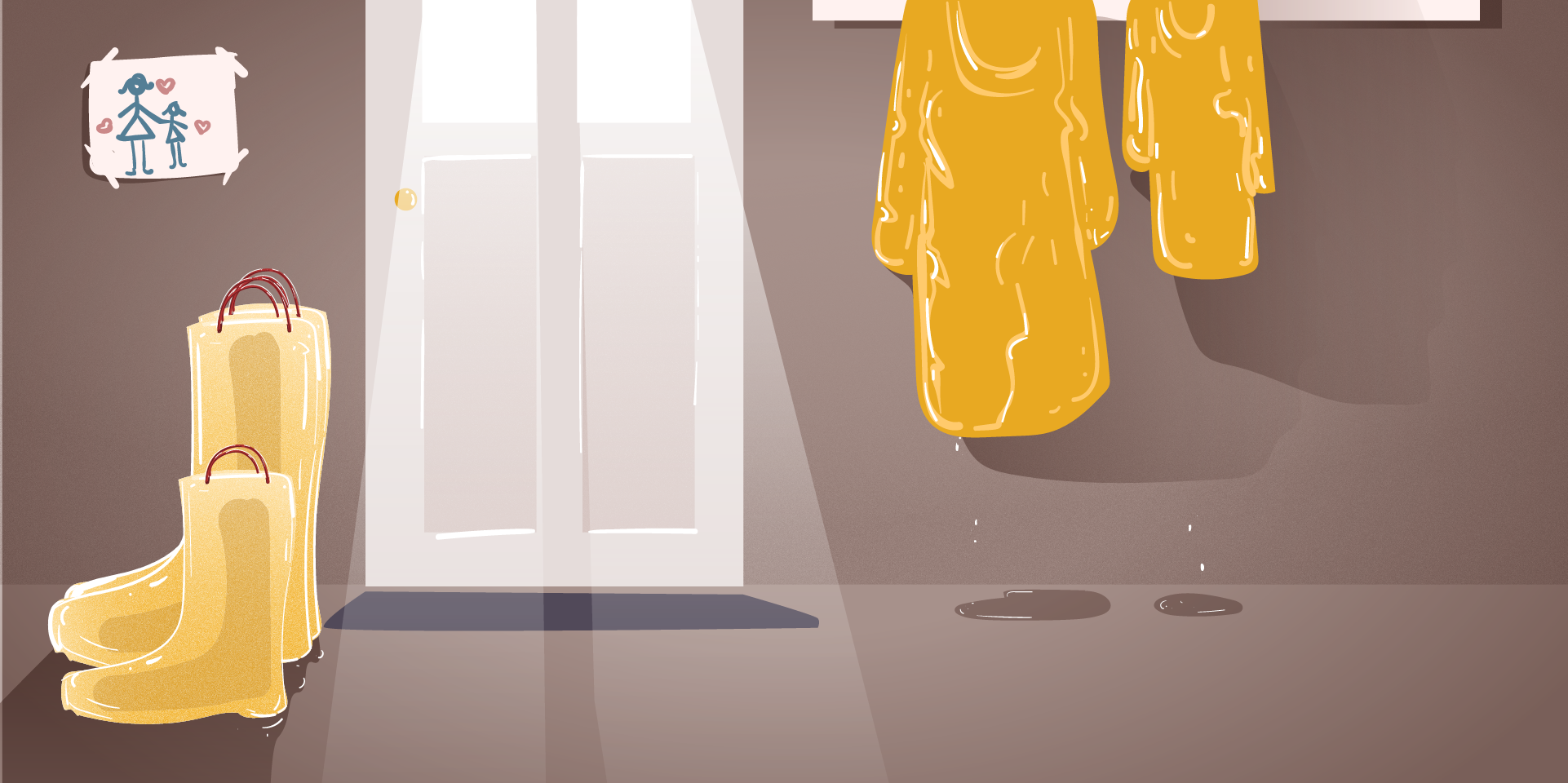I once wrote that home lived behind my eyelids, in the dustiest corners of my mind. Home could only be found in the comfort of myself — in my aloneness, in my make-beliefs. But when I saw my mother waiting in the car at the train station not trying to hold back her curling smile, I knew home would always mean being near her.
On weekday afternoons, we’d sit on the caramel colored couches in our den and watch Oprah. It was a peculiar tradition for a third grader to have, but it never ceased to enrich my curiosities, so every afternoon I raced up my driveway neglecting the other neighborhood kids. Oprah was the crack in the floodgates that allowed the two of us to exchange secrets for hours; our words circling until we had run out of ways to explain ourselves. I always begged for blather about aunts and family friends. I yearned for her stories that I would mentally dissect for weeks before coming back to her to clarify details. Her psychology and its never-ending appreciation for people seeped into my skin.
When people complimented my maturity, I’d blush with gratitude, and always secretly credited our times with Oprah.
My birthdays never emphasized presents or parties or cakes. They were about a Carpenters song and a homemade time capsule. Every Jan. 31, I’d hear those famous lyrics boisterously echoing from the sound system below, and I’d flutter my way down knowing perfectly what was to come. She’d squeeze me tight in her arms swaying, back and forth singing the lyrics and always weeping a bit about me being another year older.
The time capsule was an urban myth until I could finally open it at 16. At my first birthday party, an enormous chest was decorated and filled with notes, books, tape recordings, newspaper clippings and gifts from family and friends. It was always the rule that when I turned 16, I’d open it. In 16 years so much had changed. People had died and divorced. Once newlyweds now had large families. Friends had become mere acquaintances. Digging through the chest was like digging through artifacts of a past I’d never been old enough to know — a past she had created before me.
Someone kept the front page of The New York Times the day I was born and stored it away in the chest, others wrote notes of all the promise they knew I’d aspire to have, but the most touching sentiment came from my “Aunt” Jill.
Jill or La Boca, as they liked to call her, was an acquired taste. She was the type of person that could only be fully appreciated by someone like my mother. They’d been friends since junior high, but after they went off to college they lost touch for a bit. My mother met a girl who went to school with Jill and with utmost joy scribbled a note and her new phone number to be passed along to her old friend. A few days later Jill called, my mother answered elatedly and so Jill continued to call everyday after.
In the time capsule, Jill placed a box with pearl earrings. As I opened it, a tiny yellowed piece of paper fell out onto my lap. Before I could finish reading the few lines, I glanced up to see tears like liquid silver streaming down my mother’s face.
“She saved it. All these years, she’s saved it.”
The tiny scrap that my mother had passed along in hopes of rekindling her friendship had lived long enough to see me turn 16.
That moment looked like friendship. It smelled like love and tasted like a memory no one in that room would ever be able to forget — because that moment was my mother. You’d want to save a scrap of her 20-year-old yellowed paper, because even when she uses few words, it is impossible to forget the way she makes people feel.
She’ll introduce herself with her gentle almond-shaped green eyes and immediately shorten your name. Rachel you said? In the next sentence, you’ll be Rach, and you’ll be captivated by a person who has made you feel comfortable with suddenly being important
I wish that comfort could seep through these pages, because if it could fill everyone the way it fills me, there would be no wounds. She’d know you love grape leaves, and the specific way they are prepared. She’d have listened to that side comment you made three weeks ago about baby doll dresses, and found one for you that matched your brief description perfectly. When you’d frustrate yourself, she’d nod and explain, “it is what it is.” And she’d never admit that any of these deeds were worthy of any recognition.
Saying goodbye to her on that city street in August was like being confronted with every unknown at once. Here was my comfort, who knew about my favorite movie, the troubles that followed me, the bad boy who broke me, and the nightly recaps of our days I’d never be able to live without.
When we embraced one last time, I realized she was losing her comfort too. She created me, but I made her whole again. I filled the voids no friend, sister, or mother ever did. I questioned, but with each answer she healed in ways she didn’t know she was capable of. Her purpose became larger than her favorite Maya Angelou quote about people never forgetting the way you make them feel — for now she was teaching someone else how to live a life like her own.
The first time I came home from college, was the longest we had been apart, the first time we were significantly less aware of each other’s day-to-day, but when I opened the fridge there were grape leaves waiting.







